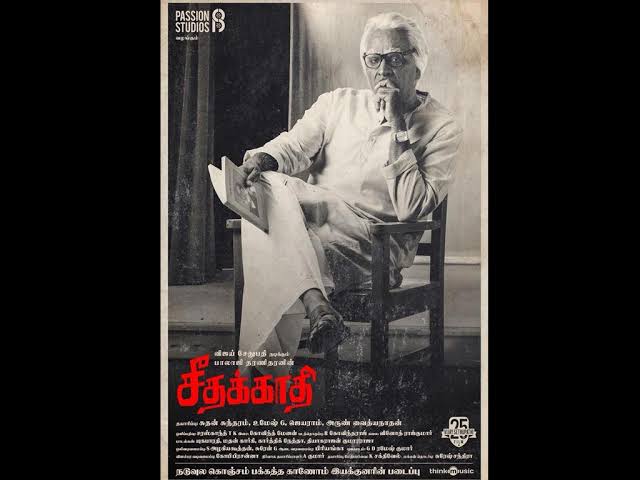கலை சாவை மதிப்பதில்லை.
Art is a form of life without which people would not sustain. It is the only medium through which our heart connects to our soul. It not only connects to your soul, but it connects to each and every soul that witnesses the art.
“Art is not always about pretty things. It is about who we are, what happened to us and how our lives are affected.”
– Elizabeth Broun
An exceptionally staged drama comes up early in the movie. The drama shows King Aurangzeb as an old, withered man, who is in the last stage of his life. He tries to block a piece of music from entering his ears, but eventually ends up enjoying it. He then realizes how much of a fool he had been to believe that he could live without Art. Such is the imbalance it creates when any form of Art has been destroyed or kept aside.
A special mention to this sequence is that it is almost a 10 minute shot, filmed without any cuts. The sequence was done to maintain the reality as much as possible, and to probably give the much needed respect to the art of Drama.
Vijay Sethupathi as “Ayya” is beyond any saying. With a minimum screen time, people thought why would Vijay Sethupathi even agree to do such an “extended cameo”. That’s where people are wrong about him, by looking at the screen time of their star, rather than the screen space. The screen space for “Ayya” is beyond Vijay Sethupathi himself. Probably, Vijay Sethupathi realized the depth of the character and its extrapolations to have agreed to play “Ayya”.
When you look closely at Ayya’s life journey in the movie, you are actually shown the way how Theatre has been perceived by the people at various times of its existence.
The scene where Ayya is on his way to his house, he witnesses a series of events that makes him wonder if he is even relevant to the current state of things. Even the house that he lives in has gone down a little as the roads have been re-layed one above the other. This symbolises the beating the art of Drama Theatre has undergone. Beautifully written and coerced as a reflection of thought of Ayya’s.
“நான் சாகுற வரைக்கும் என்னோட ரசிகர்களின் கண் முன்னாடி நின்னு நடிக்கனும்னு ஆசை.”
~Till my death, I would like to act in front of my audience.
He gives a beautiful reason for that as well.
“எனக்கு இது புடிச்சிருக்கு, நல்லதோ கெட்டதோ உடனே என் கிட்ட சொல்லிடுறாங்க.”
~I love it this way, because be it good or bad I get the result of my performance right away.
Such is the love and dedication a true theatre artist would have. The movie’s first 30-40 minutes is just pure bliss. The soul of the movie is this 40 minutes. If there hadn’t been such a strong premise, there wouldn’t have been such an impact on the rest of the movie.
Right from the start when the Director-Actor Mouli appears, you sense he is going to carry the whole film alongside “Ayya”. That’s exactly what he does. Such a beauty to watch him on screen.
Govind Menon’s background score is just so serene and peaceful. My God!! You have seen his work in 96, and he continues to do the same here. Pure magic. Pure divine.
Once the premise is set, the movie takes a turn that is completely unexpected, completely different. You simply don’t know what to expect with this, you simply sit in awe with the way things are unfolding here. We are then being taken into rollercoaster of emotions and fun filled rides, along with the hard hitting reality of how the soul of Drama Theatre – “Acting” has been used up by the business minds, commercialized to the extent that we are not able to find it anymore.
There are scenes where the reshoots of a scene have been done numerous times, and you might even wonder if those could have been trimmed to make it rightly enjoyable. Probably the reason for not trimming those were to strongly emphasize on the fact that acting is not something that can just be brought out by everyone. It is a form of art that has to be mastered over and over with practice and dedication. If you watch those retakes closely, it takes a dig at the self proclaimed stars who can’t even casually look in the other direction for a shot.
“Sir, neenga edhuvume panna venam sir, neenga chumma nillunga podhum, na shot edhuthukren.”
“Sir orey oru last shot sir, please. Konjam paathu pannunga, sir.”
“Sir, edhuvume set aala sir innikku. Nalaikku pannikalama.”
These scenes are a complete laugh riot, and at the same time, it brings out the plight of the directors who are forced to work with people without their consent.
A debate in the movie goes this way – “The mentality of the audience has changed, but the filmmakers and the producers do not want to accept the fact that people are acknowledging the variety in filmmaking.” This is actually very true. A good chunk of the audience still watch movies for entertainment, but there has been a shift in the mindset of people for better movies in recent times. People have started to ignore complete masala entertainers that were popular 5-10 years back.
The audience has always wanted something unique, something different, but when they see it on screen, they sometimes fail to realize or acknowledge that this is what they have been looking for. They need a little push. They just need to let go of any previous experiences, then they would be able to feel about the movie in a different way.
Seethakaathi is not just a movie.
Seethakaathi is an epitome of Art.
Seethakaathi is a tribute to the Art of Drama Theatre.
Seethakaathi is a tribute to all the true artists of any Art.
கலை சாவில் முடிவதில்லை.

